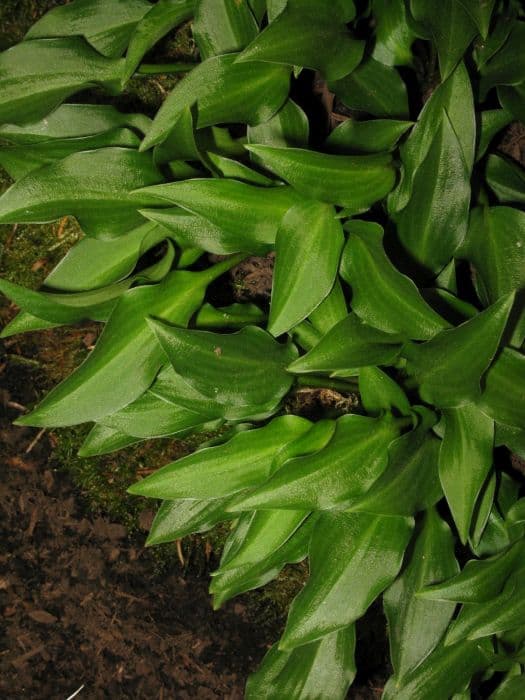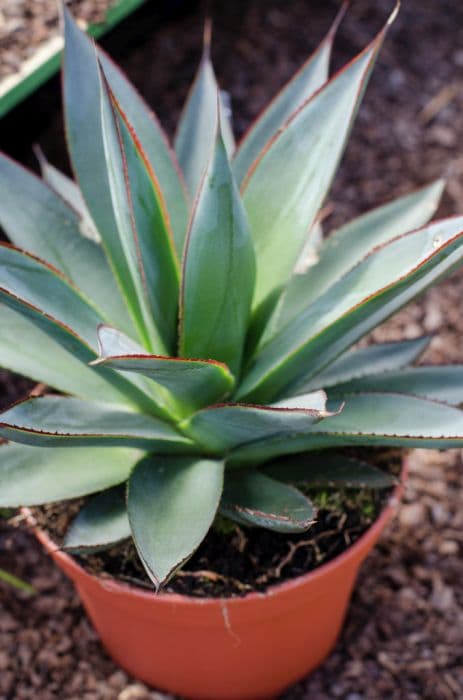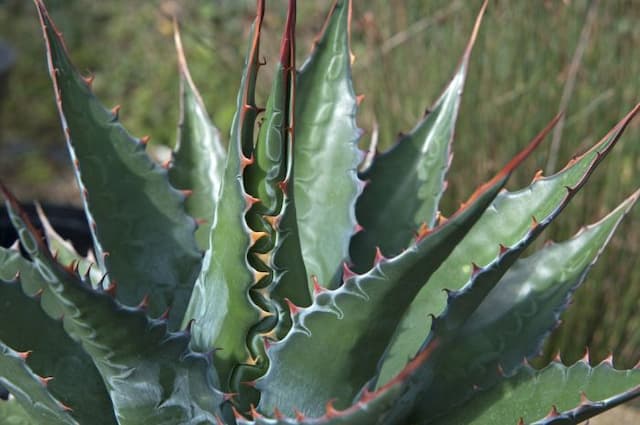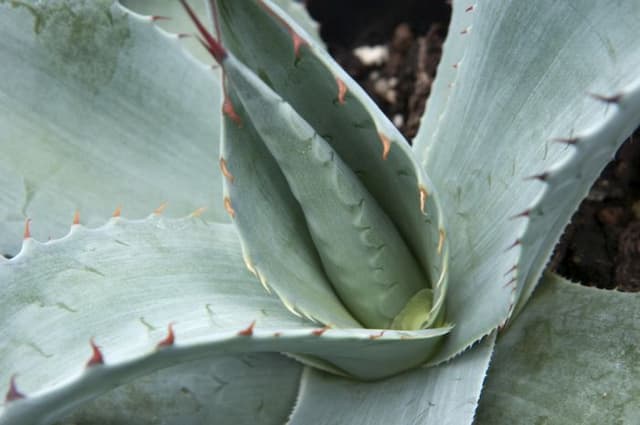Hosta Hosta 'Paradise Puppet' (venusta)

ABOUT
Hosta 'Paradise Puppet' is a charming ornamental plant that features a lush mound of foliage. It is characterized by its bright, attractive leaves that are small, heart-shaped, and come in a lovely shade of green with striking white edges that give the plant a delightful variegation. The leaves are slightly wavy and have a smooth texture that adds to the plant's visual interest. As the season progresses, the variegated patterns on the leaves can become more pronounced, accentuating their decorative appeal. In addition to its foliage, Hosta 'Paradise Puppet' also bears delicate flowers that rise above the foliage on slender stalks. The blooms are bell-shaped, adding a gentle splash of color to the plant's appearance. This Hosta variety is particularly valued for its compact form and the ornamental quality it brings to garden compositions, making it a popular choice for gardeners looking to add texture and contrast to shaded areas.
About this plant
 Names
NamesFamily
Asparagaceae
Synonyms
Plantain Lily, Funkia, Giboshi
Common names
Hosta venusta
 Toxicity
ToxicityTo humans
Hostas, including 'Paradise Puppet', are generally not toxic to humans and are unlikely to cause serious harm if ingested in small amounts. However, if larger quantities are consumed, they could potentially cause mild stomach upset. Eating any part of the plant is not advised. It's important to always exercise caution with plants and keep them out of the reach of young children who might ingest them out of curiosity.
To pets
Hostas are toxic to pets, including cats and dogs. If a pet ingests any part of a Hosta plant, they may experience symptoms such as vomiting, diarrhea, and depression. In more severe cases, ingestion can lead to an increased heart rate and could potentially cause more serious gastrointestinal issues. Pet owners should take care to prevent their animals from accessing and ingesting these plants. If you suspect your pet has consumed any part of a Hosta, you should contact your veterinarian immediately.
 Characteristics
CharacteristicsLife cycle
Perennials
Foliage type
Deciduous
Color of leaves
Green
Flower color
Purple
Height
6 inches (15 cm)
Spread
12 inches (30 cm)
Plant type
Herb
Hardiness zones
3
Native area
Asia
Benefits
 General Benefits
General Benefits- Attractive Foliage: Hosta 'Paradise Puppet' has beautiful, ornate leaves that can vary in color, often with striking variegation, adding aesthetic appeal to gardens.
- Shade Tolerance: This hosta variety thrives in shady conditions where many other plants do not, making it ideal for woodland gardens and shaded beds.
- Low Maintenance: Hostas are known for their ease of care, requiring minimal maintenance once established, making them suitable for novice gardeners.
- Border Plants: Their compact growth habit makes them excellent for creating borders along pathways or flower beds.
- Ground Cover: Hostas can serve as effective ground cover, reducing weed growth and minimizing soil erosion in the garden.
- Drought Tolerance: Once established, they can tolerate periods of drought, although they prefer consistent moisture.
- Long-Lived Perennials: Hostas are perennials that return year after year, offering long-term presence in a garden with proper care.
 Medical Properties
Medical PropertiesThis plant is not used for medical purposes.
 Air-purifying Qualities
Air-purifying QualitiesThis plant is not specifically known for air purifying qualities.
 Other Uses
Other Uses- Miniature Gardening: Due to its small size, Hosta 'Paradise Puppet' can be an excellent choice for miniature and fairy gardens, offering a proportionate foliage aesthetic.
- Accentuating Water Features: This cultivar's lush leaves can be utilized to enhance the appearance of water features, such as ponds or fountains, by providing a contrasting green backdrop.
- Bonsai Companion: Hosta 'Paradise Puppet' can be used to accompany bonsai trees, adding a different texture and color at the base of the bonsai display.
- Photography Prop: The striking foliage of this plant provides a serene and vibrant setting for photographers looking to add natural elements to their compositions.
- Leaf Castings: Crafters might use the textured leaves of Hosta 'Paradise Puppet' to create concrete leaf castings for decorative garden art.
- Living Mulch: As it spreads, this ground cover can also act as a "living mulch," providing soil moisture retention and weed suppression in garden beds.
- Container Gardening: Hosta 'Paradise Puppet' is suitable for container gardening, where it can thrive in small spaces like balconies and terraces.
- Seasonal Arrangements: The leaves can be included in autumnal floral arrangements, contributing a lush, green touch to the mix of fall colors.
- Educational Tool: The plant can be used in school projects or educational gardens to teach students about perennial life cycles and shade gardening.
- Garden Borders: Hosta 'Paradise Puppet' can be planted as a border to define garden pathways or bed edges with its foliage.
Interesting Facts
 Feng Shui
Feng ShuiThe Hosta is not used in Feng Shui practice.
 Zodiac Sign Compitability
Zodiac Sign CompitabilityThe Hosta is not used in astrology practice.
 Plant Symbolism
Plant Symbolism- Resilience: Hostas can thrive in a variety of conditions which makes them symbolic of resilience and the ability to adapt.
- Devotion: Their lush foliage that returns every year is reflective of loyalty and devotion, suggesting a steadfast nature.
- Peace: The Hosta plant is often found in serene garden settings, signifying peace and tranquility.
- Healing: In some cultures, Hostas are believed to have healing properties, symbolizing comfort and the healing process.
- Self-reliance: The plant’s ability to grow well in shade symbolizes independence and self-reliance.
 Water
WaterFor the Hosta, also commonly known as Plantain Lily, it is important to keep the soil consistently moist, especially during the growing season. Watering once a week with about one gallon of water per plant should suffice, but this may need to be adjusted depending on the weather conditions, with more frequent watering during hotter, dry periods, and less during cooler, wetter times. It is best to water the plants in the morning to allow the leaves to dry before nightfall, which can help prevent fungal diseases. Always avoid overhead watering to keep the leaves dry and instead water at the base of the plant to reach the roots directly.
 Light
LightPlantain Lilies thrive best in dappled or partial shade, but they can also tolerate morning sun followed by afternoon shade. Avoid placing them in areas with harsh, direct afternoon sun as it can scorch their leaves. An ideal spot for the Hosta is under the canopy of trees or on the north or east side of a building where they can receive bright, filtered light.
 Temperature
TemperaturePlantain Lilies prefer temperatures that range from 50 to 75 degrees Fahrenheit. They can survive brief periods of colder weather down to about 30 degrees Fahrenheit, but freezing temperatures can damage or kill the plant. The ideal growing conditions are in areas where the temperature does not fluctuate to extremes, providing a moderate and consistent temperature ideal for their growth.
 Pruning
PruningPruning is not typically necessary for the health of Plantain Lilies, but it can improve their appearance by removing any damaged or spent leaves. Prune in early spring or as needed throughout the season to remove yellow or damaged foliage. The best time to tidy up the plants is in late fall or early winter, after the first frost, when you can cut back the foliage to prepare the Hosta for its dormant period.
 Cleaning
CleaningAs needed
 Soil
SoilMiniature Hostas require a well-draining soil mix consisting of equal parts loam, peat moss, and perlite; this combination ensures moisture retention yet allows excess water to escape, preventing root rot. The ideal soil pH for Hostas is slightly acidic to neutral, ranging from 6.0 to 7.0.
 Repotting
RepottingMiniature Hostas like 'Paradise Puppet' should generally be repotted every 2 to 3 years, or when you notice that the plant has outgrown its current container which can be indicated by roots growing through the drainage holes or circling the pot.
 Humidity & Misting
Humidity & MistingMiniature Hostas prefer moderate to high humidity levels but are quite adaptable and tolerant of the typical humidity found in most homes which usually ranges from 30% to 50%.
 Suitable locations
Suitable locationsIndoor
Place in filtered light, keep moist, high humidity.
Outdoor
Part shade to full shade, moist soil, shelter from wind.
Hardiness zone
3-9 USDA.
 Life cycle
Life cycleThe Hosta 'Paradise Puppet', more commonly known as Hosta or Plantain Lily, begins its life cycle as a dormant rhizome during the winter months. With the arrival of spring, new shoots emerge from the soil, developing into a rosette of leaves. Throughout the spring and summer, the plant exhibits vigorous vegetative growth, forming a dense clump of heart-shaped, variegated foliage. By mid to late summer, the Hosta 'Paradise Puppet' produces slender flower stalks, known as scapes, which bear delicate, bell-shaped lavender or white flowers attracting pollinators. After flowering, the plant sets seed, which can be dispersed by wind or animals, potentially giving rise to new plants. As temperatures drop in the fall, the plant's foliage dies back, and it re-enters a period of dormancy, conserving energy for the next growing season.
 Propogation
PropogationPropogation time
Spring-Early Summer
The most popular method of propagating Hosta 'Paradise Puppet', commonly known as Hosta, is through division. This technique is best done in the spring or early fall when the plant is not in active growth. To propagate by division, carefully dig up the entire plant, making sure to keep the root ball intact. Using a sharp knife or spade, divide the plant into smaller sections, each with at least two or three shoots and a portion of the root system. Replant the divisions at the same depth they were growing at previously, spacing them approximately 15 to 30 inches (38 to 76 centimeters) apart to allow room for growth. Water the new plants thoroughly to help establish their roots in the garden. Division not only propagates new Hosta plants but also rejuvenates older clumps that might have become too dense, restoring their vigor and encouraging more robust growth.









